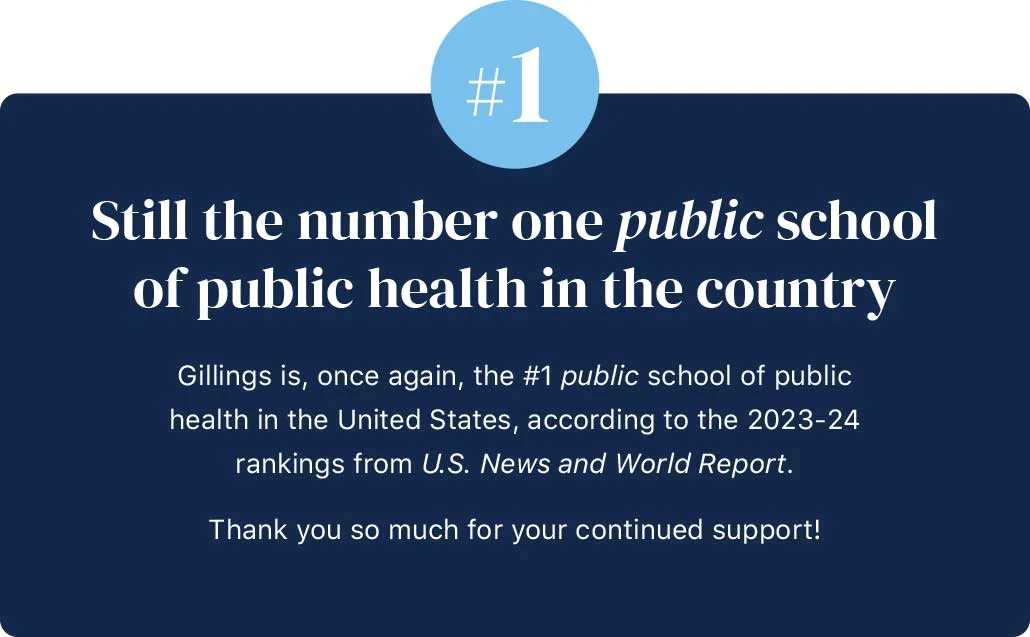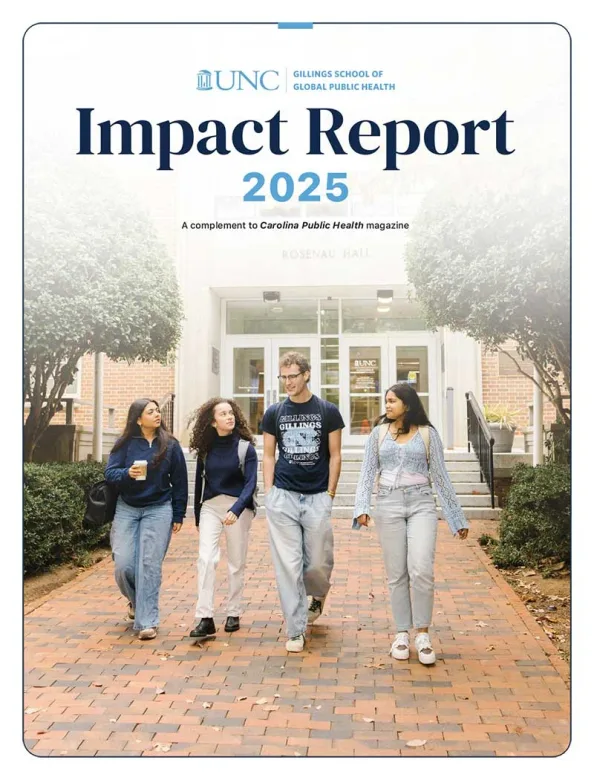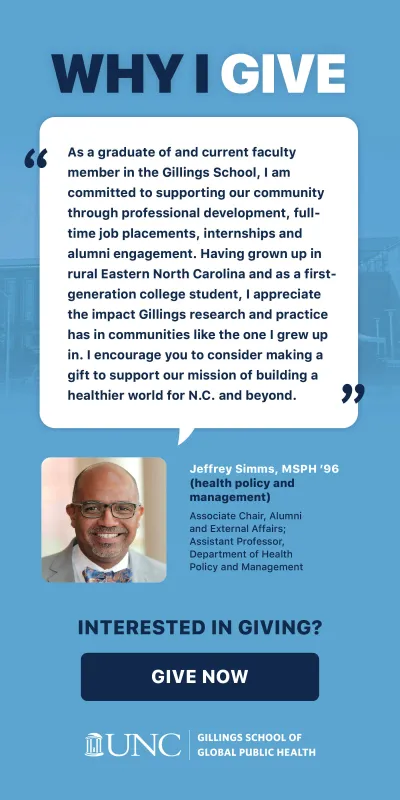Mobile health smart messaging could lead to safer drinking choices
Researchers are developing a mobile app that uses location and social cues to send real-time messages helping young adults reduce high-risk drinking behaviors.
Every year, millions of young people risk serious harm from excessive alcohol consumption. Avoiding alcohol can be difficult while in college, among friends or in other social settings, but experts at the UNC Gillings School of Global Public Health believe a mobile phone app could play a vital role in helping young people make a healthier choice in some situations.
While no amount of alcohol is considered safe for health, excessive drinking increases the risk of alcohol poisoning, violence and injury, car accidents, and long-term health problems like heart and liver disease and cancer. In 2023, more than a quarter of Americans between ages 18-25 reported binge drinking — consuming 4-5 drinks on one occasion — in the past month, and more than 2 million reported high-intensity drinking — a risky behavior indicating consumption of more than double the binge drinking threshold.
“Our research has shown that high-intensity drinking is a relatively frequent behavior that has severe consequences,” said Melissa Cox, PhD, assistant professor of health behavior at the Gillings School, who is leading the development of the mobile health solution. “There are various environmental determinants — like where you are and who you’re with — that might facilitate this type of behavior, and these are the kind of factors our mobile app is trying to mitigate.”
The app uses an algorithm that leverages data on a user’s location and social situations to trigger real-time text messages.
The mobile app uses an algorithm that leverages data on a user’s location and social situations to trigger real-time text messages, prompting the user to consider how many drinks they’ve had and how to reduce their risk for negative consequences because of drinking. Users will complete daily reporting on the amount of alcohol they’ve consumed the previous day and the potential health effects it may have provoked. During the initial pilot period, the app will also survey users 30 days after the trial to track any changes in drinking behavior and related harms. This type of just-in-time-adaptive-intervention (JITAI) approach was informed by work completed by the Gillings Innovation Lab-funded smart app for weight management led by Gillings School researchers Deborah Tate, PhD, Carmina Valle, PhD, and Brooke Nezami, PhD.
“It’s a creative way of integrating technical information gathering with what we know from the evidence base works to address high-risk drinking and putting it all together to generate this intervention,” Cox explained.
The study team is working with UNC’s Connected Health for Applications and Interventions (CHAI) Core to help shape the app, deploy the algorithm and ensure it protects privacy. Cox says the app will have high levels of encryption, and all data collected from users will be voluntary.
Startup funding from the National Institutes of Health and Innovate Carolina’s Translating Innovative Ideas for the Public Good (TIIP) Award is providing critical support for the app, which is still in its early pilot phase of trial to determine whether it can be a feasible solution to address high-risk drinking. These grants are a boon to researchers who want to innovate new solutions to potential public health challenges but face a mountain of startup costs that other grants will not cover without proof of concept.
“We wouldn’t have been able to do what we’ve done thus far without the Innovate Carolina funding,” Cox said. “We’re not even building the full app yet; that’s the expensive part. Right now, we’re developing something that has a look and feel of an app, because tech-based behavioral interventions are expensive. It takes a lot up front to even get to the point where you can rationalize the larger investment in building native apps.”
Cox and her research team began the pilot phase of testing in early fall of 2025 and hope to recruit users between 18-25 who come from a broad section of the general public, not just college students. The data from the pilot will help them determine the feasibility of building a more robust app that can ultimately prevent harms from high-risk alcohol use by intervening in drinking choices in real time.




